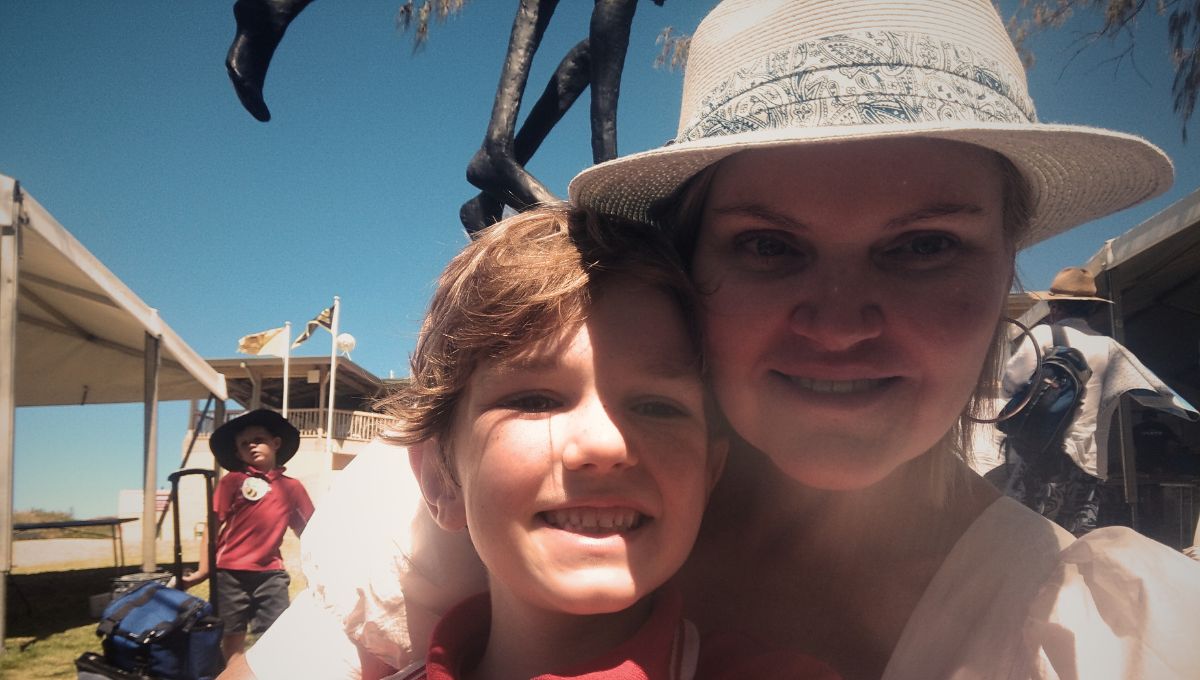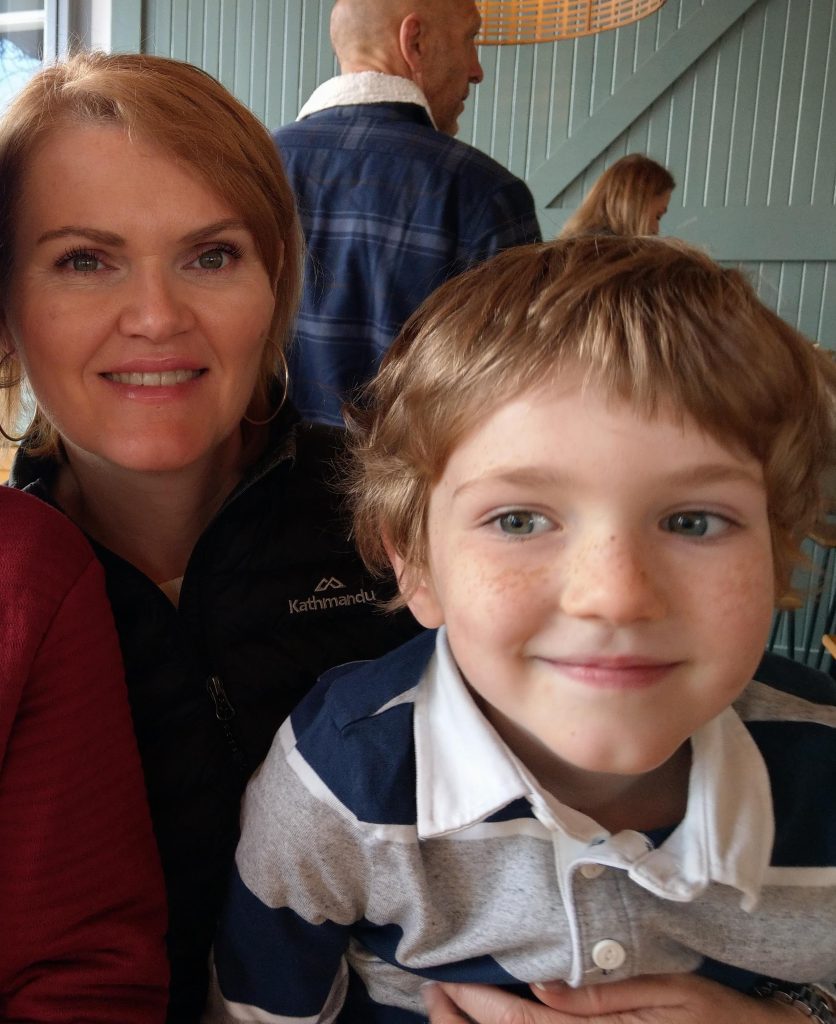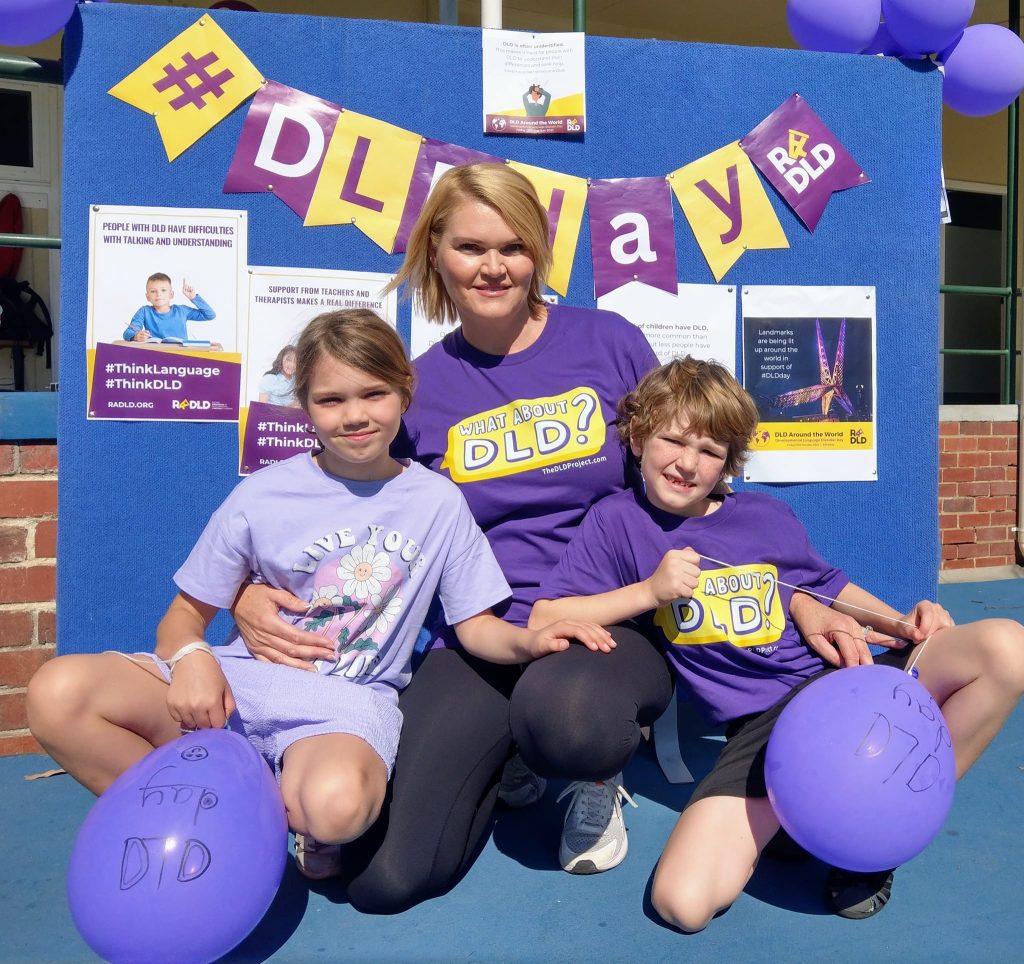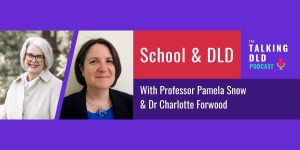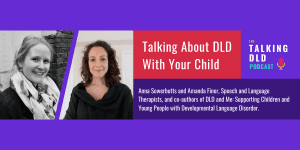1 in 14 people have Developmental Language Disorder (DLD), a hidden disability that makes talking and listening difficult. The below insights have been provided by Kymberly, Ayrton’s mum in support of #DLDday. Thank you to Kymberly and Ayrton for sharing their story with us.
About Ayrton
Ayrton enjoys outdoor activities playing tennis, swimming and playing with his monster trucks and cuddling his pets.
When did you notice SIGNS Ayrton was struggling with his language?
Around the age of 3-4 years. Ayrton was unable to string a sentence together and could usually only find around 3-4 words. He was often furstrated at not being able to find the word he wanted to express.
What did you do when you noticed he was having challenges?
I spoke to his Kindy teacher and she said he was doing okay in class. Pre kindy (private) didn’t pick up on it either. I however had Ayrton on a wait list to multiple private speech pathologists. It was during the last week of term 4 while Ayrton was in kindy that his teacher said I think Ayrton has a speech delay….and finally put in a public referral!! A private speech pathology clinic got in touch with me through one of the multiple referrals I had made in March the following year. Ayrton has been seeing Amy Bain at Superyou ever since. Amy is amazing!
What have been the strategies that have most helped Ayrton?
Having breaks during class with his headphones. Having an EA help him with all academia a few times per week. Leaving the classroom for sport that he enjoys or art as it’s no academic and he doesn’t need to read or write. Sitting close to the teacher and using the strategies his psychologist has put on a poster which we have in the playroom at home. Having a day at home with mum when needed.
What support has Ayrton accessed from health professionals?
Occupational Therapy from me his mother as often as I can without overwhelming him which can add to fatigue and frustration. I pick my times very carefully, Speech Pathology 3 times per month out of the classroom and once per month in the classroom when they are doing phonics and psychology every fortnight.
Have you applied to the NDIS? If yes, what has your experience been?
Yes I did apply and I was lucky as Wanslea rushed it through before Ayrton turned 6 and submitted it under global developmental delay (GDD), not DLD. Our funds run out in March next year. I’ve been told a mix of things:
-
- If you get an additional diagnosis on top of DLD your funding should just roll over. Ayrton was diagnosed with inattentive ADHD 8 weeks ago and dyslexia. I sent Wanslea the reports from Ayrton’s psychologist and paediatrician and the reply was this won’t make any difference to his funding. I left it at that.
- You won’t get any more funding after your funds cease next March because DLD isn’t recognised by the NDIS.
- NDIS has raised the age for all children diagnosed with GDD and ASD to have continued funding until age 9. Why?? Because girls are very often not diagnosed with ASD until 9!
How has ayrton found navigating school? Do his educators know and understand what DLD is?
We changed schools (from public) this year for both of our children. Their previous school were not going to provide any kind of support for Ayrton including no EA any day. When Ayrton was diagnosed with DLD while at his first school his teachers hadn’t even heard of it, nor flagged it in any prior year. They just said he wasn’t progressing as normal and put him on an IEP. When I had an initial meeting with the principal at his new school and she knew of his diagnosis she asked if we had heard of the Language Development Centre (LDC) (Kindy to Year 3 only for children with DLD or any language delays etc, once they hit Year 4 they transition into a mainstream primary school). No one had mentioned this to us. Therapists, school nor teachers. We decided against it for a few reasons and had no choice any way as the applications had closed and no LDC anywhere in Perth had any places to offer.
However, through my discussions with LDC they told me they had an outreach program for all WA schools/teachers free of charge to educate teachers about DLD. Right from the beginning…. statistics 2 in every classroom of 30, teaching approaches, interventions etc. I mentioned this to the principal and she called LDC that day and we have two Year 1-2 teachers from CBPS one being Ayrton’s Year 1 teacher) attending the year long out reach program. I say year long as I believe they attend one full day per term. So, it was reassuring the principal, and in another meeting the deputy principal had heard of DLD and they asked me what my expectations were as I had told them we were not going through with LDC. I said your school can provide Ayrton with an EA (shared with other students) in his classroom and a small classroom size (currently 16), which is 100% to what Ayrton’s previous school could provide. So, in terms of educators…they are onboard and learning. I was told at the beginning of the year the 2 teachers will educate the rest of the staff from what they have learned from the outreach program at LDC.
School has been a constant challenge for Ayrton right from Pre Kindy, Kindy, Pre Prep and now year 1. Initially I thought it was separation anxiety when he was 3, however it’s still ongoing every morning before school. Crying, exhausted and everything at school is very, very hard.
How has Ayrton found making and maintaining relationships?
Ayrton is very friendly and easily makes friends. However as soon as one of the boys get too rough or boisterous and or he is unable to follow the game Ayrton retreats and plays by himself or is in tears. Ayrton is a very gentle sensitive little boy who gravitates towards the company of youngers boys (kindy age) or girls his age 6 or younger. His closest friend at his current school is level 3 ASD who offers no challenges verbal nor physical for Ayrton. Ayrton has maintained friendships from his previous Pre Kindy and Pre Prep. One boy the same age whose IQ is off the chart, one girl the same age and a younger boy who he met in Pre Kindy with (SLD)! All other friends Ayrton had in term 1-2 at his current school are no longer.
What are the areas he struggles with that you believe are due to DLD?
All areas of academia, and learning ANYTHING NEW. Numeracy, literacy, reading, writing, etc. Emotional regulation, short term memory loss, decrease in word finding ability, staying on task, completing tasks, and self-care. Ayrton is unable to put his tee shirt on the right way, nor his shoes on the correct foot. Ayrton needs constant prompting while bathing and brushing his teeth. Although Ayrton enjoys sport, he really struggles with team sports to follow instructions and learning a new game. So individual/solo sports best suit him. Tennis and swimming.
What do you want people to know about DLD?
DLD is a very challenging disorder to understand, and it’s permanent. There are so many areas of your child that are affected by DLD. It can be difficult to know where to start and navigate their needs on a daily basis. Reach out to other parents, perhaps start a new support group in your area or state.
What would you say to a parent of a person with DLD? What have you learned that you’d like to share?
You’re not alone. I’m still learning and educating myself. Although we are just starting to get the word out there to the wider community, Australian’s, NDIS and politicians. Everything we know now about other health conditions was small, insignificant and unknown in the beginning. Until there were too many patients, people talking, Drs and researchers that said….THIS IS SOMETHING! Keep advocating for your child. You are their voice until they find one or have one! We need to keep building momentum with DLD! This is where it all starts.
What will you be doing on #DLDday 2023?
Our school will be a sea of purple. We are having a “Purple Free Day!” Every student and staff have been asked to wear the colour purple for the day. A gold coin donation has been requested from each pupil and a silver coin if they wish to have a go at the guess “How many purple lollies are in the jar.” From Monday the week of DLD Day, one of the year 6 students will be announcing over the P.A. system “One Fact of DLD” and will continue each morning with a new DLD fact.
Is there anything Ayrton would like to add? We’d love his insight too.
Ayrton would like to say…my brain is big. My brain is so full. My brain hurts me every day. It makes me want to scream.
We’d also love your OT take on DLD and any OT tips you’d be happy to share with families to support their loved one.
A visual board/chart works well at home. Instead of constant nagging. I say please look at your chart. For example, getting ready for school:
- pack lunch box and water bottle
- get dressed into school uniform
- pack library bag
- feeds pets
- make bed
- brush teeth, etc.
Yes, therapists are busy, but we are primarily in the job we love and genuinely want to help and make a difference to your family and child’s life. Instead of trying to get everything out verbally at your child’s therapy appointment (which reduces the time with the therapist), write down some jot points with a date of what happened, so it can be documented and addressed in future therapy sessions.
Listen to your child. Tired, anxious, desperate,. Keep them home with mum or dad, a trusted relative/close friend. Let them rest. They are not going to learn or enjoy anything if they are not in the right space. Remember DLD involves fatigue.
OT’s, regardless of the reports you have read and the interventions you have planned, always use your clinical reasoning and listen to your client’s needs.
Public schools and the curriculum are currently not equipped to support children with DLD.
JOIN THE WHAT ABOUT DLD CAMPAIGN?!

1 in 14 Australians have a hidden disability called Developmental Language Disorder (DLD) and they feel invisible. Please choose at least one of the following ways to join the ‘What about DLD?’ national campaign in 2023.
FIND A SPEECH PATHOLOGIST NEAR YOU
If you don’t have a speech pathologist at your school, try Speech Pathology Australia’s Find a Speech Pathologist page or Google ‘speech pathology services near me’. You can self-refer to many speech pathology services, but you may also like to speak to your GP who may be able to help you access a Chronic Disease Management plan through Medicare. Write down your concerns about your child’s language, literacy and learning to share with the speech pathologist.
Access our free DLD training resources for families
Head to our DLD training for families page to access courses and information on understanding a DLD diagnosis, navigating the NDIS and What is Language + What is DLD.

